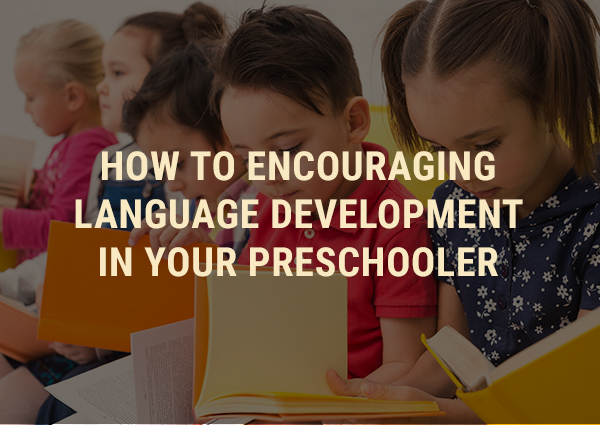How To Encouraging Language Development In Your Preschooler
In the following we’ll be discussing about a crucial topic that’s “How to Encouraging Language Development in Your Preschooler” and will discuss about it thoroughly within the article. Children’s language development is probably going to progress more rapidly when they are actually given frequent opportunities to interact with both children and adults.
1. Talking With Other Children
Kids who frequently play with others who are actually about the same age generally develop expressive language skills more quickly than people who have contact only just with adults. Young children speak very directly and simply or easily, which helps other children learn speech.
2. Talking With You And Other Adults
Kids actually develop as well as improve their speech and language skills by talking with their parents and even with other adults. These discussions also help children form mental images of individuals, events, and places, which are important milestones in thinking and learning. Talking with adults introduces proper grammar and complicated sentences to children.
But your kid can actually pick up poor grammar too. Your child learns from even very simple conversations. During ages 4 to five, your child is probably going to learn many swear words. Your kid will actually hear adults swear whenever they are angry or even stressed. And your child will find that individuals react strongly whenever he or she uses swear words. Try and be a good role model or leader and not use swear words. Also, try to actually get your child to not use swear words.
Moreover, parents often gain more insight into their kids feelings as well as thoughts as language skills increase. Furthermore, sometimes conversations with young children turn up important fears or even anxieties that parents can help or assist manage. You must keep calm when your kid tells you something disturbing. Kids don’t always express themselves using the same language as the adults do. for instance , a toddler may say “Johnny wants me to actually jump off the building at school” and really mean that he’s scared of using certain equipment on the playground.
Here are some tips to assist your child learn new words and use longer sentences:
- Add to what your child says. For instance, if your child says “red ball,” you’ll be able to add another word like “soft red ball.”
- Describe feelings. For instance, when your child is crying because he or she cannot go outside to play, you’ll say, “You are upset and feel sad because you cannot go outside now.”
- Teach your child the correct or proper names for common objects, like “toes” (not “piggies”) and “cut” (not “owie”).
- Don’t ever imitate your kid’s unclear speech, constantly correct, or even embarrass your child by making him/her repeat unclear words, particularly when other people are around. Correct your kid in a really positive way by rephrasing, repeating as well as relabeling.
- Encourage your child to actually talk to others, including other children his or her age. However don’t ever force your kid to actually talk or make him/her uncomfortable by insisting on conversation.
- Don’t talk for your child. For instance, allow your child to ask you for something he or she wants.
3. Reading
Reading to your kid daily actually helps him/her to develop speech as well as language skills. Reading together also offers a quiet time of comfort as well as bonding.
- Choose books that show numerous actions. Ask your kid to point to familiar or similar items as well as make the sounds that go with them.
- Visit the library on a daily basis.
4. TV
Limit TV time to 1 hour every day or less. TV actually does not seem to encourage or even support children’s development of speech as well as language skills. Generally, spoken words make quite a little impression unless they’re in the context of a conversation with someone the kid knows as well as cares about.

